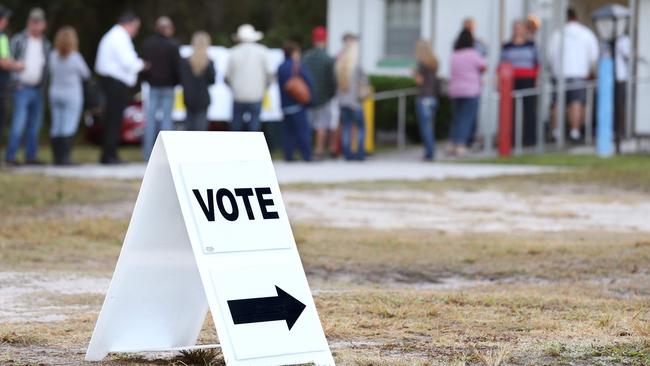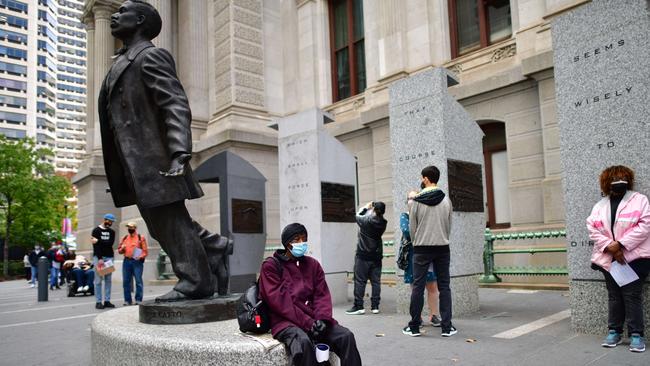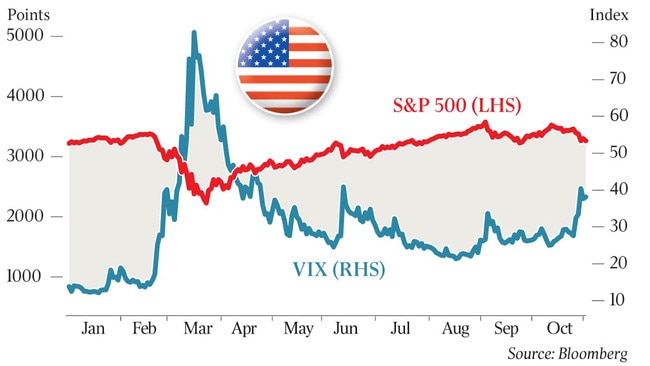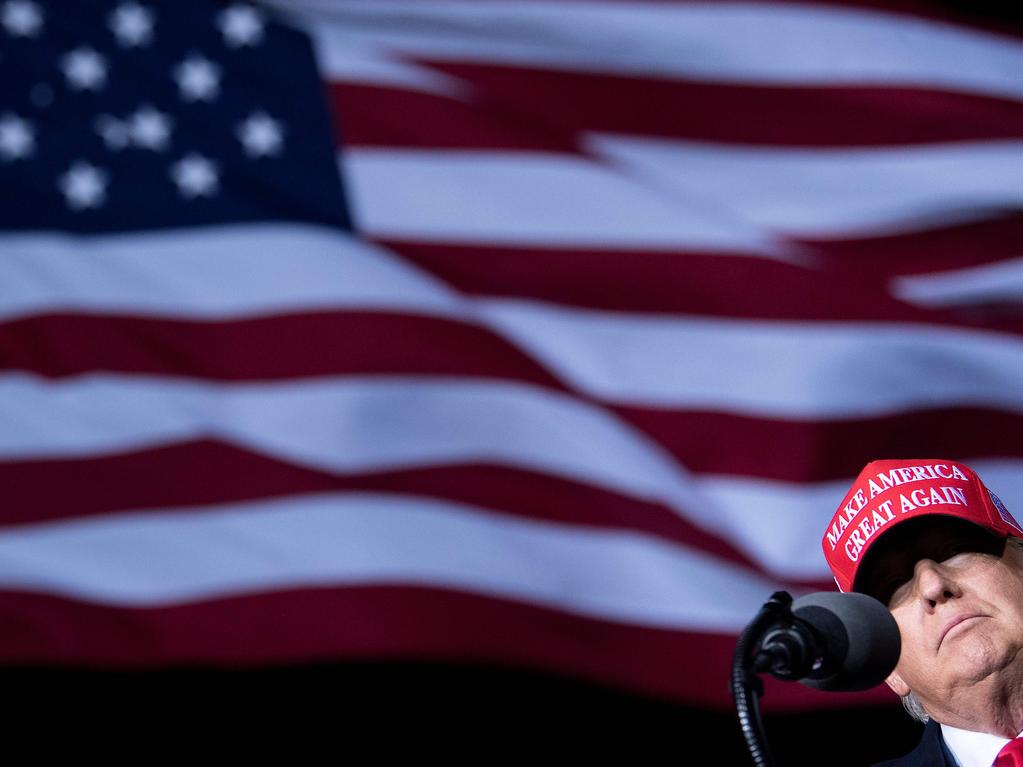Get set for a wild week on the markets, whatever happens in US election
It’s a huge week for financial markets with the highlight being the US election on Wednesday, Australian time.

It’s a huge week for financial markets with the highlight being the US election on Wednesday, Australian time.
If that’s not enough, the Reserve Bank is expected to cut rates and start large-scale asset purchases on Tuesday, the Federal Reserve should stay dovish and keep its commitment to asset purchases at least at the current level when it meets, and the RBA’s quarterly statement on monetary policy is due on Friday along with US non-farm payrolls data.
All are potential surprises to some degree, but investors are counting on a decisive US election outcome that paves the way for major fiscal stimulus, which should bolster expectations of an economic rebound and help share prices resume the uptrend that has stalled in recent weeks.
Of course as the Brexit vote and recent elections in the US and Britain have shown, anything can happen and the market reaction to certain outcomes may not be exactly what investors have prepared for.
If the polls are right, volatility should retreat from abnormally high levels and the US sharemarket should “melt-up” towards its recent highs.
But with the resurgence in coronavirus in Europe and the US, such a move could well be led by the US tech giants again. A Biden White House would presumably follow Europe into COVID lockdowns to some extent and proven vaccines are obviously still some way off.
Underpinning a potential improvement in the global risk appetite would be even greater asset purchases by the European Central Bank, the Federal Reserve and also Australia’s RBA.
The biggest risk for markets this week would be a contested election outcome that causes volatility to stay high, triggering more of the recent derisking and deleveraging in global markets.
Still, a lot can happen in 24 hours these days and it would be interesting to see how the Fed reacts.
Interestingly, Morgan Stanley strategists led by Michael Zezas feel that the S&P 500 should initially trade lower in a “blue sweep” scenario as investors contemplate the impact of likely capital gains and corporate tax rate increases but potentially more radical policies as well.
That’s contrary to the consensus view.
“We’d ultimately view this as a dip to buy,” Zezas says.
“That’s because the cyclical bull market, based on early economic cycle dynamics, would remain intact and be further underwritten by fiscal stimulus.”

Importantly for the medium term outlook, he’s more confident in economically supportive fiscal policy coming from most outcomes — in particular a Democrat sweep scenario — whereas investors remain somewhat concerned about the impact of higher taxes and more regulation.
Conversely, he warns that investors may be overestimating the perceived benefits of legislative gridlock in a scenario where Democrats win the White House but Republicans keep the Senate, even though the consensus view is that it would help check the worst of Democratic policies.
“Here we see underappreciated risks to proactive fiscal support for the economy,” Zezas says.
In 2016, the consensus incorrectly assumed a Trump victory would yield a market sell-off.
“Investors can avoid such mistakes by focusing on ‘plausible policy paths’ in order to separate policy reality from campaign promises,” he says. “This involves thinking about likely policies based on total government make-up, not just presidential campaign rhetoric.
“That approach in 2016 would have steered you away from bearishness around a Trump victory, since his most likely policy path was fiscal expansion through tax cuts.”

While noting that everybody has a plan until they get punched in the mouth, investors need to be prepared for different outcomes and not be fazed by unexpected twists and turns.
“This is particularly important given several plausible election outcomes and the uncertain timing of a definitive result,” says Zezas.
“If clear Democratic victories emerge in states like Florida and North Carolina that report results earlier, it could be a short night for investors.
“But given polls showing tight races there, we’re more likely to need a day or more for the slower counts from Michigan, Pennsylvania and Wisconsin for a better read on the outcome.”
In his view US Treasury yields should maintain their recent rise and the US dollar should continue weakening, because in three of the four most likely post-election configurations Morgan Stanley strategists expect the plausible policy path to include fiscal expansion that underwrites the continuation of a V-shaped economic recovery.
Meanwhile, the US investment bank’s Australian equities strategist, Chris Nicol, argues that with lockdown fears increasing in northern hemisphere markets, Australia presents well as a resilient reopening play.
Economic reopening trades like ANZ, Sydney Airport, Qantas and Vicinity jumped on Monday.
“Mobility allowances are increasing as policymakers aspire to a COVID-normal status for calendar 2021,” Nicol says. “Domestic border openings loom as the next reopening catalyst.”
He notes that with the risks of lockdown reduced by successful recontainment of virus cases and seasonal factors, the ASX 200 relative outperformance seen in October versus its developed markets peers can be expected to extend as social easing progress evolves.
Nicol expects the RBA to cut rates to a new record low of 0.1 per cent and broaden its government bond purchases, introducing an additional quantitative target.






To join the conversation, please log in. Don't have an account? Register
Join the conversation, you are commenting as Logout